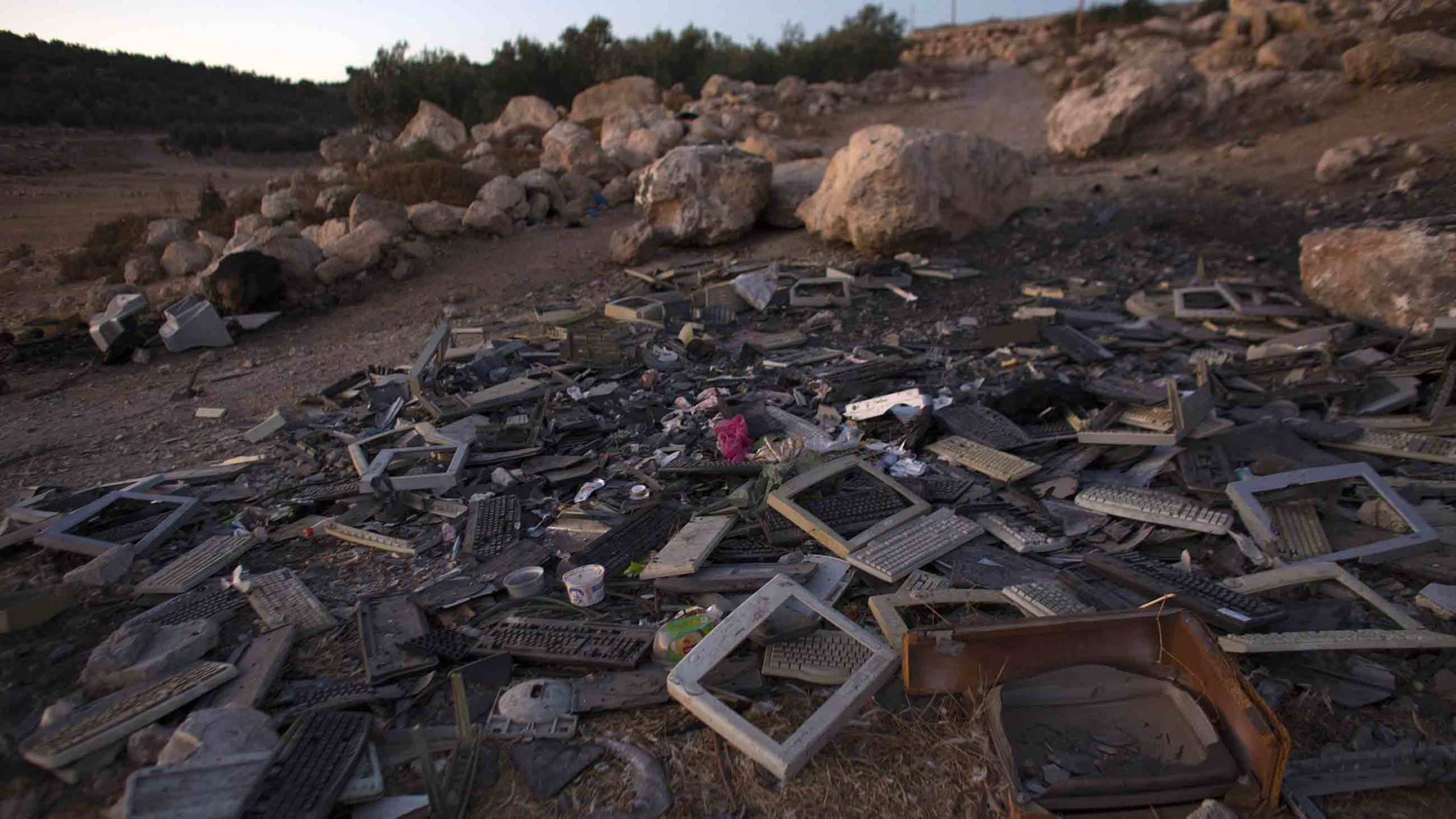Last November, I was standing in the backyard of a home in the West Bank looking at the fire-blackened pit where a pile of electronic waste had been burned — a lucrative but illegal industry in the region. My guides were an unlikely pair: Sarah Awawdeh, a 36-year-old mother of six in a colorful hijab and clunky, high-heeled boots, who heads a grassroots movement to minimize the health hazards of burning e-waste; and her colleague Yaakov Garb, a researcher at Israel’s Ben-Gurion University who has been examining the practice and impacts of crude e-waste dismantling in the Palestinian Territories for decades.

A rapid-response team collects spaghetti-like strands of copper wire that a burner was trying to illegally harvest. The local municipality posted the images on social media.
Awawdeh and Garb were showing me the plot of scorched earth where Palestinian men routinely use butane torches and other makeshift tools to dismantle refrigerators, air conditioning units, computers, cables, and other remnants of electronic debris ready for burning. Burning is a crude and prohibited means for extracting copper and other resalable metals embedded in trashed appliances, and over the past two decades, it has become a boom industry in this otherwise stagnant Palestinian region, where Israeli military occupation challenges virtually all forms of development.
As we toured one of the many sooty areas, Awawdeh and Garb spotted thick, black plumes of smoke a mile away, indicating an active burn. We rushed into a dirt-caked truck belonging to the burn response unit, and as the driver sped toward the suspected location in the hills outside the city of Hebron, my hosts phoned their contacts in the Israeli army, requesting passage through a barrier gate between two rural villages. In the high-voltage cat-and-mouse game to catch a burner, every minute is crucial — something the soldiers also understood — and they waved us through.
In under 10 minutes we were at the burn site, just outside the West Bank village of Beit Awwa, and Garb, along with the driver and another member of the frontline response team began shoving the charred, spaghetti-like strands of copper — melted-down, marketable metals from the electric cables found in everything from telephones to switches to lights — into the back of the truck. The municipality would price the copper at thousands of shekels (at least several hundred dollars), but the burner, who later turned out to be a disabled man on the brink of financial ruin, was nowhere in sight.
Such exercises are meant to create a teaching moment, promoting safer, more sustainable alternatives to e-waste burning for the 600,000 people living in the Hebron region of the Palestinian West Bank. The Beit Awwa mayor returned the metals to the disabled man, fined him 1,000 shekels (nearly $300), and had him sign a document saying that in the future, he would bring his cables to the local grinding facility rather than burn them.
On the day it collected the copper, the municipality posted pictures of the material on its Facebook page. “It is the duty of the municipality but, even before that, it is the duty of the average citizen,” the municipality wrote in a comment on the post, “to protect his land, his streets, his home, his children and his family from harm and from diseases, and to create a clean environment.”
Read the full article here.


 Shira Rubin
Shira Rubin
